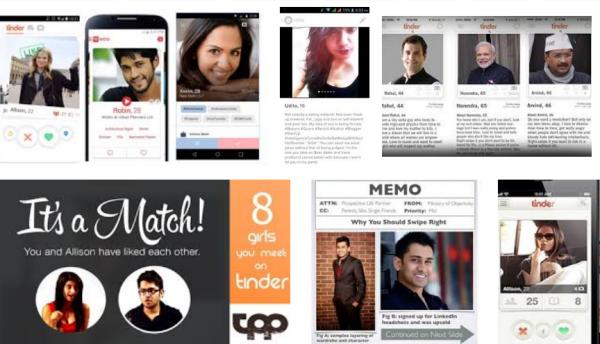Dating app scandal from India proves that you DO HAVE something to hide. Yes, YOU
The popular dating app Tinder was caught charging its users as much as three times more for the same service, depending on the ages of those users. What does this mean?

On the Internet, nobody knows how old you are. Except the people who can charge you more for that.
</em></u>
Huffington Post India reports that:
- as of last week, Tinder was charging, for its premium service Gold, a 25-year-old Rs 520 per month, a 33-year-old woman Rs 1,099 and a 36-year-old man Rs 1,600
- prices were slightly higher for user of Apple devices over Android devices
Tinder’s surcharge for the “unforgivable sin of being in your thirties”, says that post, is:
- the most visible instance of how companies are harnessing personal user data to discriminate against users on the basis of completely arbitrary indicators
- one of clearest examples of why India urgently needs a data protection law…
Let’s focus on the second issue. An Indian data protection law is surely needed, as far as I can understand, even if the global situation on this front is already a mess, and likely to get worse, as I commented last week. This Tinder story, however, is also a very clear proof of another thing:
the “I have nothing to hide” mantra is wrong and has no basis in reality. As a minimum, people repeating it have no real clue about who, or what they should really hide from, and why. This Tinder story shows that everybody has something to hide.
This Tinder story shows very simply how information that is more or less public, 1000% legal and irreproachable, like one’s age and smartphone brand, is all is needed to discriminate people, in ways that they may never notice.
Ditto for your FRIENDS. Remember to hide them
You have a few friends. The fact that those people are your friends is, in most cases at least, something you are rightly proud of, right? There is nothing to hide in that, right?
Wrong. Banks trying to automatically, unfairly decide whether you deserve a mortgage by looking at the average credit rating of your Facebook friends were not science-fiction already some year ago. Today, that same post about Tinder also reports that “in India, banks are building apps that read your text messages, and analyse social media posts to assess loan applications”.
Everybody has an age, a few friends, probably a smartphone, and lots of equally “nothing-to-hide” properties. Everybody has something to hide. It’s obvious, once you understand from whom you should hide, and why.
Who writes this, why, and how to help
I am Marco Fioretti, tech writer and aspiring polymath doing human-digital research and popularization.
I do it because YOUR civil rights and the quality of YOUR life depend every year more on how software is used AROUND you.
To this end, I have already shared more than a million words on this blog, without any paywall or user tracking, and am sharing the next million through a newsletter, also without any paywall.
The more direct support I get, the more I can continue to inform for free parents, teachers, decision makers, and everybody else who should know more stuff like this. You can support me with paid subscriptions to my newsletter, donations via PayPal (mfioretti@nexaima.net) or LiberaPay, or in any of the other ways listed here.THANKS for your support!